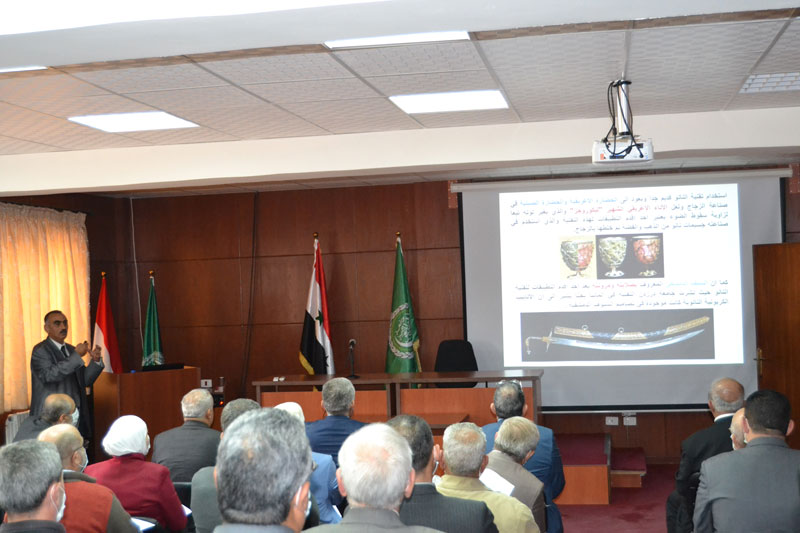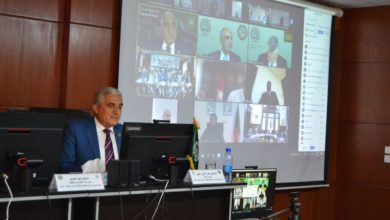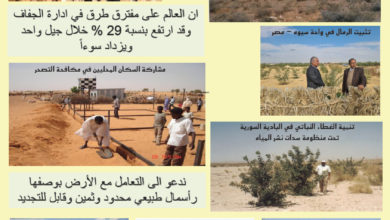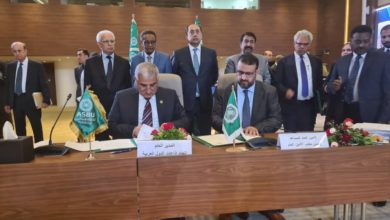Nanotechnology and the prospects for its application in the agriculture field Workshop in ACSAD
As part of the implementation and strengthening follow-up of scientific research developments, the Arab Center for the Studies of Arid Zones and Drylands (ACSAD) held a scientific workshop “nanotechnology and prospects for its application in the agricultural field” in its headquarter in Damascus on 11/11/2020, in the presence of the Director-General, Dr. Nasr Edin Obaid, a large number of Syrian, Arab experts and researchers, and interested people attended.
In a speech at the opening of the workshop, the Director-General of the Arab Center “ACSAD” said that since its inception, the organization has still paid great attention to the development and management of natural resources through the inclusion and dissemination of advanced scientific technologies, which contribute to the exploitation of agricultural land-use and enhancing food security. furthermore, the expansion of research topics and scientific studies in the fields of the work of ACSAD, and paying close intention to the scientific research development, demanding from the experts and researchers working in the ACSAD to expand the transfer of modern technologies and the methods of using them to enhance the scientific status and technical development of the Arab Center “ACSAD.” He clarified that nanotechnology is an industrial and scientific revolution that ACSAD organization should benefit from in its different work fields then spread this benefit to all Arab countries.
Dr. Yasser Al-Salama, a soil fertility expert in the ACSAD, presented a scientific presentation entitled “nanotechnology and prospects for its application in the agricultural field,” in which he defined the concept of nanoparticles, its forms, and methods of manufacturing of nanomaterials, pointing to the most important applications of nanomaterials in the agricultural field, such as fertilizers, pesticides, and nano-filters; using nanotechnology in water resources, especially purification and desalination, and the irrigation of crops and fruit trees with nanotubes, in addition to using this technology to improve the properties of dunes` soils and its fixation, and in food industries, pointing to the significant economic return of nanotechnology applications.
The presentation was followed by scientific and technical discussions, in which the experts and researchers explained the importance of nanotechnology and its application prospects, the practical and applied benefit of this technology, especially in Arab Center ACSAD’s work fields.
In light of this, a scientific committee was formed to study project proposals that could be implemented by ACSAD, including:
- “the effect of using nano fertilizer (NPK) on the growth and productivity of some ACSAD’s wheat varieties within various agricultural environments.”
- “the use of some nanomaterials in purification and sanitation of wastewater and reusing in irrigation.”
- “An assessment project of the subsurface irrigation system using nanotubes to irrigate some crops and fruit trees in different regions,” and “the use of liquid nano-clay and nano zeolite to improve the properties of sandy soils and dune fixation.”




